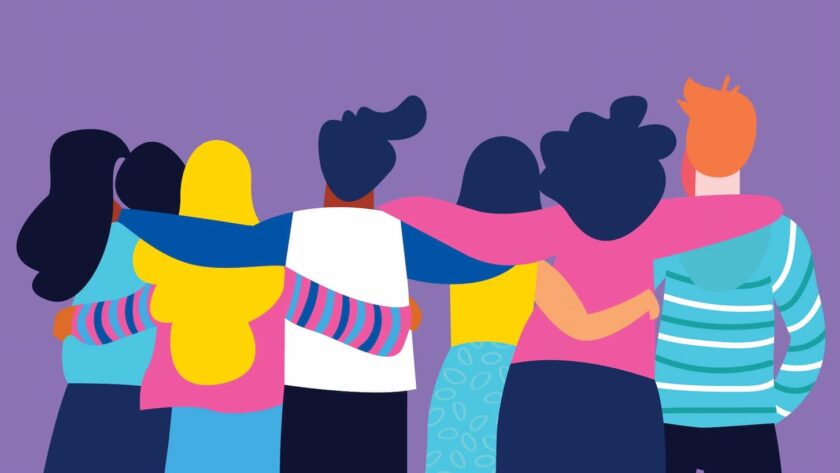Immediately before General Synod, news broke that Sydney Anglican schools were furious that the Diocese of Sydney now requires new principals and directors of its school boards to sign a document affirming an exclusive belief in heterosexual marriage. For our Anglican schools and for our youth, diversity is good news.
ANGLICAN SCHOOLS AUSTRALIA: CEO’S ADDRESS
President and Members of General Synod, my name is Peter Laurence and I’m the CEO of Anglican Schools Australia, or ASA as we’re known. ASA is a Network of General Synod. Our membership comprises the almost 160 Anglican schools in every state, the ACT and a number in New Zealand. I thank the Primate for his invitation to be here.
ASA member schools educate some 165,000 students and employ some 30,000 staff. 25% of independent school students across Australia are enrolled in Anglican schools, over double the number of any other non-government schools grouping other than those in Catholic schools. Many of you here today sit on an Anglican school governing board or council.
One of the stated purposes in our Constitution is to report to General Synod on major matters discussed by Anglican schools.
General Synod is currently debating matters of marriage, human sexuality and same-sex relationships. ASA wishes to bring to the debate the voice of Anglican schools.
Not for a minute do I believe there’s one voice – I’ve been an Anglican all my life and I’m a realist! Just as there’s division of opinion on matters of faith and practice across and within dioceses, and well reflected in debate at this General Synod, our schools reflect the diversity of the communities which they serve – indeed the diversity of multi-cultural and multi-faith Australia in 2022.
How might we know what issues are important to young people today? One way is through the Mission Australia Youth Survey. Mission Australia is a national Christian charity motivated by a shared vision of an Australia where everyone has a safe home and can thrive.
The Mission Australia Youth Survey is the largest annual survey of young people in Australia. Now in its 20th year, the Youth Survey aims to identify the values, aspirations and issues of concern to young people. In 2021, over 20,000 young people in Australia aged 15-19 years participated in the Youth Survey.
These 20,000+ young people nominated COVID-19, the environment and equity & discrimination as the key issues that Australia needs to address…in that order, they are the key issues of important to them…TO THEM.
Of note, the 2020 survey listed equity & discrimination as no. 1, COVID-19 as number two and mental health as number 3.
Noting COVID-19 has sat at the forefront of all our minds these past two years, young people are deeply concerned about issues of equity and discrimination, and mental health. The three top reasons given by youth in the survey for unfair treatment this past year were ‘gender’, ‘mental health’ and ‘race or cultural background’. How will your decisions this week help address this issues of concern, or indeed compound them for the youth in our schools? How might they open doors for School Chaplains and teachers to conversations about Jesus, or drive them away?
The 2021 survey showed that higher proportions of gender diverse young people reported being unfairly treated – some 70% of gender diverse youth, against 38% of those who identified as female and 25% as male.
The CEO of Mission Australia James Toomey says that with equity and discrimination identified as an important national issue by our young people, it’s gravely concerning that more than one third of those surveyed had been unfairly treated in the past year.
Health and wellbeing issues were also highlighted in the 2021 survey. It showed young people remain very aware of their own mental health.
According to the Australian Institute of Health and Welfare, discrimination – being treated unfairly on the basis of individual characteristics such as appearance, cultural background, gender, sexuality and disability – is a key social determinant of health and wellbeing. The Institute reported that experiencing discrimination can have devastating consequences on the health and wellbeing of young people. It’s been shown that discrimination (whether direct, indirect or systemic) is associated with anxiety, depression, self-harming, suicide risk, poor physical health and behavioural problems. Our schools have to deal with these issues every day.
Anglican schools are, and always must be, safe places for young people, irrespective of a young person’s sexuality or their parents’ or carer’s marriage or other relationship. At what is one of the most vulnerable times of their life, we adults need to ensure we give messages of inclusion, welcome and acceptance to the students in Anglican schools. We should affirm them, not reject them. This message must be even louder and clearer to those who identity as LGBTQIA+. The decisions of General Synod will be reported through mainstream media and social media and be discussed in Anglican schools and agencies, as they will be in parishes. There may be few to no under 20 year olds in Synod Hall today, but I encourage you to keep every one of those 200,000 students and staff in our Anglican schools top of mind as you prayerfully consider the way forward on matters of marriage, human sexuality and same-sex relationships.
You see, many teachers and support staff in Anglican schools are living in same sex relationships or are same-sex attracted. Tens of thousands of students in Anglican schools are struggling with the complexity of adolescence and their human sexuality. For them, the matters of this Synod are not theological precepts, they are what the Mission Australia Youth Survey identified as the most important things in the world right now to them as teenagers.
Tim Browning, the Headmaster of St Peter’s College Adelaide wrote in March this year: “At its best, Christianity welcomes and celebrates diversity and is in turn enriched and strengthened by that very diversity. St Peter’s College remains committed to being a place where all parents, students and staff feel accepted and welcomed.” That means no matter what.
Phillip Heath, the Head of Barker College in Sydney and Founding President of Anglican Schools Australia writes on their website: “The role of the Head is to… provide a secure place for children, young people, their teachers, and their parents safely to experience being fully alive in mind and spirit, free of the fear of exclusion or rejection, infused deeply with love each day and in every way. We are preparing students for a future that will be far less defined by gender roles than in the past. The School’s culture is inclusive, innovative and full of hope for the future.”
Anglican schools sit right smack dab in the middle of our Church’s mission and ministry today. Our dynamic faith-based schools are Christianity in action for some 200,000 staff and students on campus each day. To these young and not-so-young people living in a world with all its complexities and messiness, we bring the unconditional inclusive love of Christ. Anglican schools are and must remain comprehensive in our theology and practice, if we are to be a bridge between our Church and society.
Our schools are so important – please keep them at the forefront of your minds in your discussions and decisions this week.
As you prayerfully discern the leading of the Holy Spirit, remember the student voice. May Anglican schools continue to be affirming places of welcome and inclusion for all.



